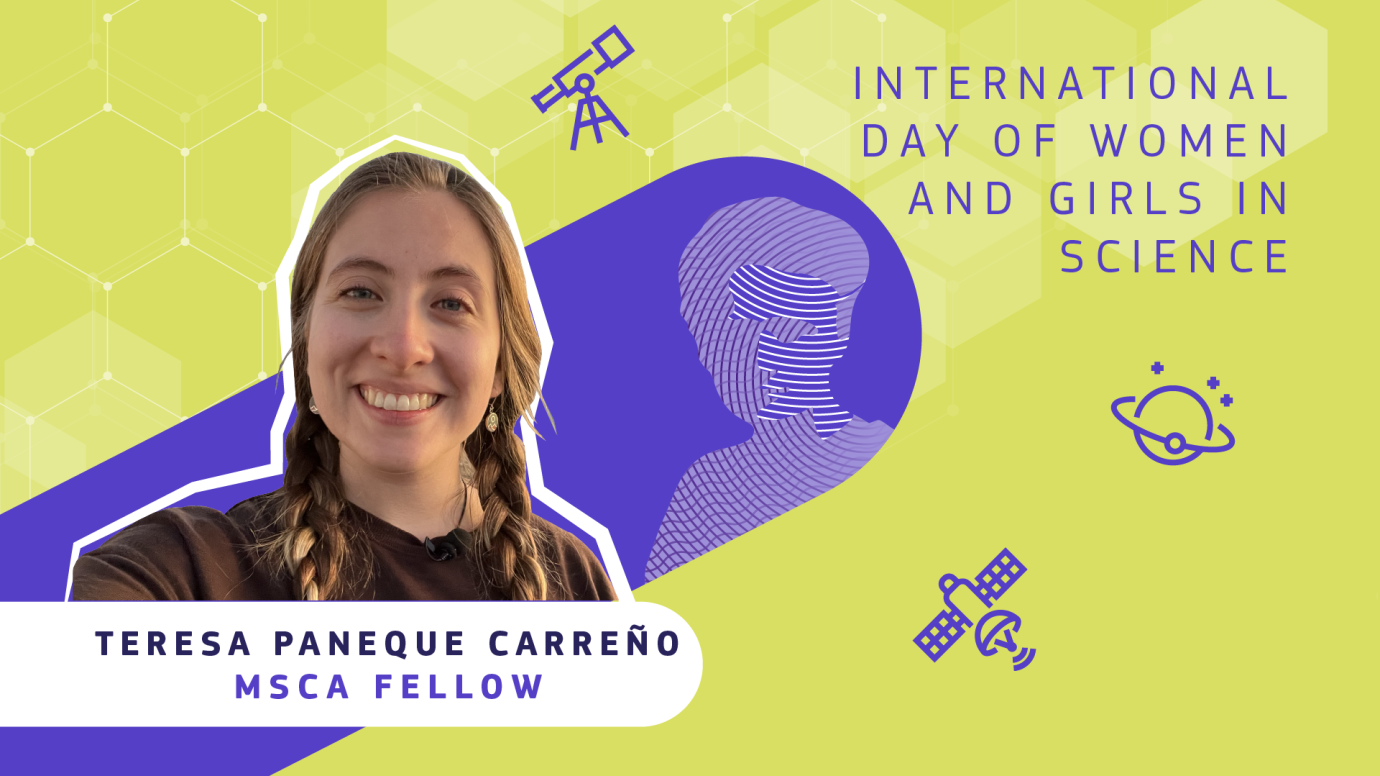Remember every day that you are powerful and needed
Spanish-Chilean astronomer and MSCA fellow Teresa Paneque Carreño believes that science is popular and should be present on every platform, including social media and children’s books.

Could you tell us a little about your background? What attracted you to a career in astronomy?
I was always fascinated by understanding everything around me, from a very theoretical point of view. I wasn’t much of a hands-on person, but loved to make things “make sense”.
Physics quickly became one of my favorite subjects in school, and within physics I thought that astronomy was very interesting, as it was an area of study where people had to be very ingenious to find answers. I loved the challenge of using maths as a language to describe stars and far-away planets, which we could never reach or experiment with.
Currently I focus on the chemistry around planet-forming enviroments. In simple terms, I try to understand how the chemical reservoir for new-born planets is distributed around their young host stars.
I loved the challenge of using maths as a language to describe stars and far-away planets, which we could never reach or experiment with.
Through your social media accounts you make people travel through the wonders of astronomy. When and how you decided to embark on this journey and why do you think it has been so successful?
I entered the world of science communication unintentionally in 2019. At that time, I was living in Chile and there was a total solar eclipse in the north of the country. The media was heavily covering the event and as a master student in astronomy at one of the main universities I got a couple of interviews that other people couldn’t attend.
The public liked the way I explained, so I decided to make some social media accounts and start filming myself in short videos to talk about various astronomy topics. I started doing this in a more dedicated way in 2021, through multiple platforms. I never dreamt that two years later I would have over 900.000 followers!
I believe my success, both on social media and through the two (soon to be three) published children’s books on astronomy, shows that science is a popular topic and that access to scientific content should be present on every platform.
I believe my success [...] shows that science is a popular topic and that access to scientific content should be present on every platform.
Your academic track record is brilliant. Why is the involvement of women like yourself crucial to advance research in your field?
Women are half of the world’s population. Science in any field tries to solve questions for all of humanity by facing problems from multiple points of views. The optimal way to do good scientific work is by having groups that represent the global population, and women should be equivalent to half the field.
Personally, having women mentor me in my graduate studies (master and doctorate) has been fundamental to feel like there is a space for people like me in the field. We are not better than our male colleagues, just equally necessary and fundamental for the development of science with a global perspective.
We are not better than our male colleagues, just equally necessary and fundamental for the development of science with a global perspective.
How was your experience as an MSCA researcher?
Being an MSCA researcher from an early point in my career was fundamental for my current position.
It gave me the opportunity to learn about theoretical models and astrochemistry while I was finishing my master thesis in Chile, and this motivated me to apply to a doctorate position in Europe. It also gave me an early view of how international and collaborative science is.
I am very greatful for having been involved in a project funded by MSCA, and for the opportunity to learn from so many great professors beyond my own advisors.
What advice would you give to young women wishing to embark on a science, technology, engineering, arts and mathematics (STEAM) careers?
I would advise young women to surround themselves with people that will support them in their careers. Friends, family and mentors that will push them up in the moments where they may doubt themselves.
Science can be a tough path, but you find amazing people through the collaborative spirit that is always present. Having good mentors is crucial—if they are women, better still. Of course some people, regardless of gender, may be negative influences. Have the confidence to steer away from them.
Remember every day that you are powerful and needed, by being in science you are opening new avenues of research and inspiring young girls to follow in your footsteps every day.
Remember every day that you are powerful and needed, by being in science you are opening new avenues of research and inspiring young girls to follow in your footsteps every day.
Follow Teresa in her journey towards the wonders of astronomy on
Last updated:


